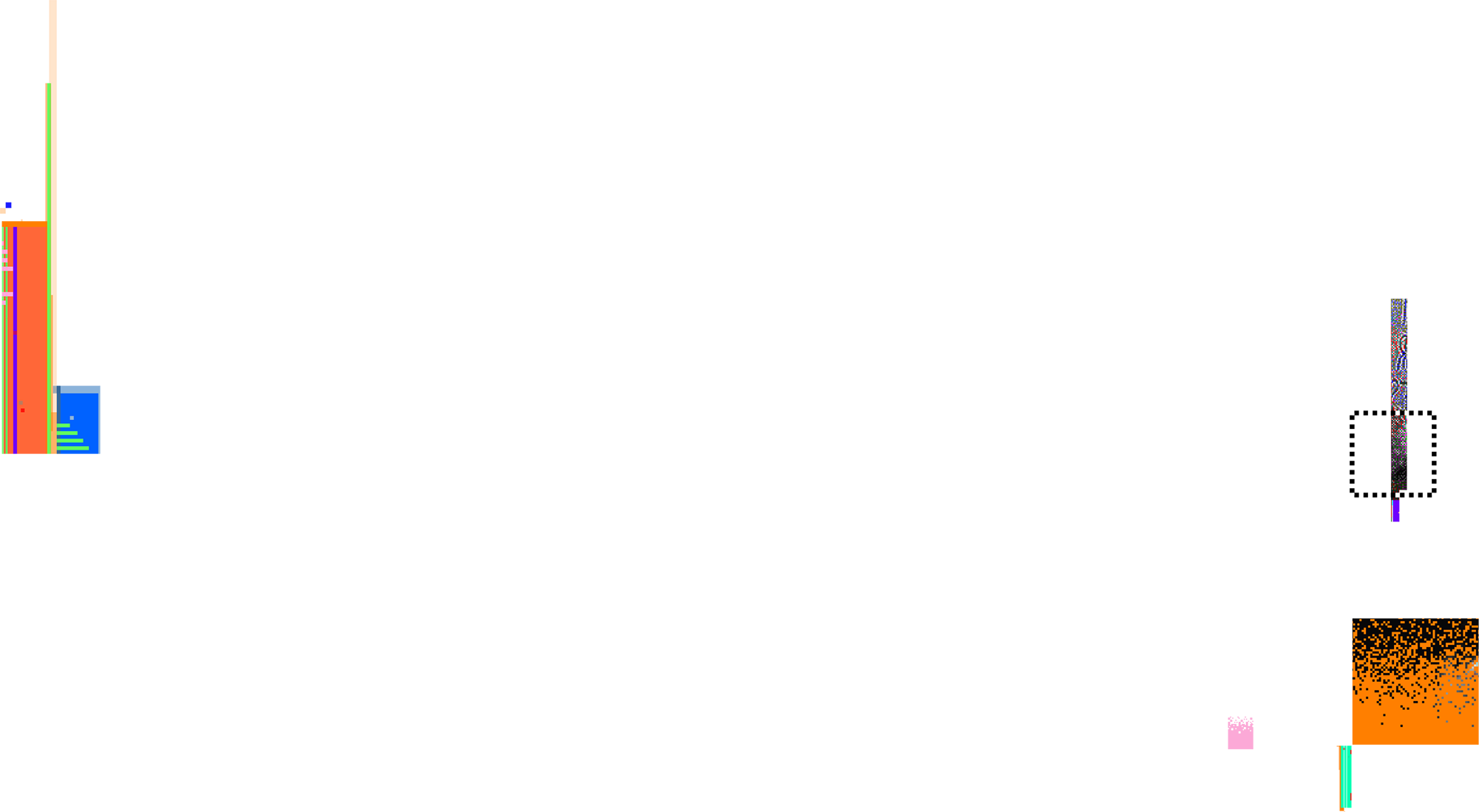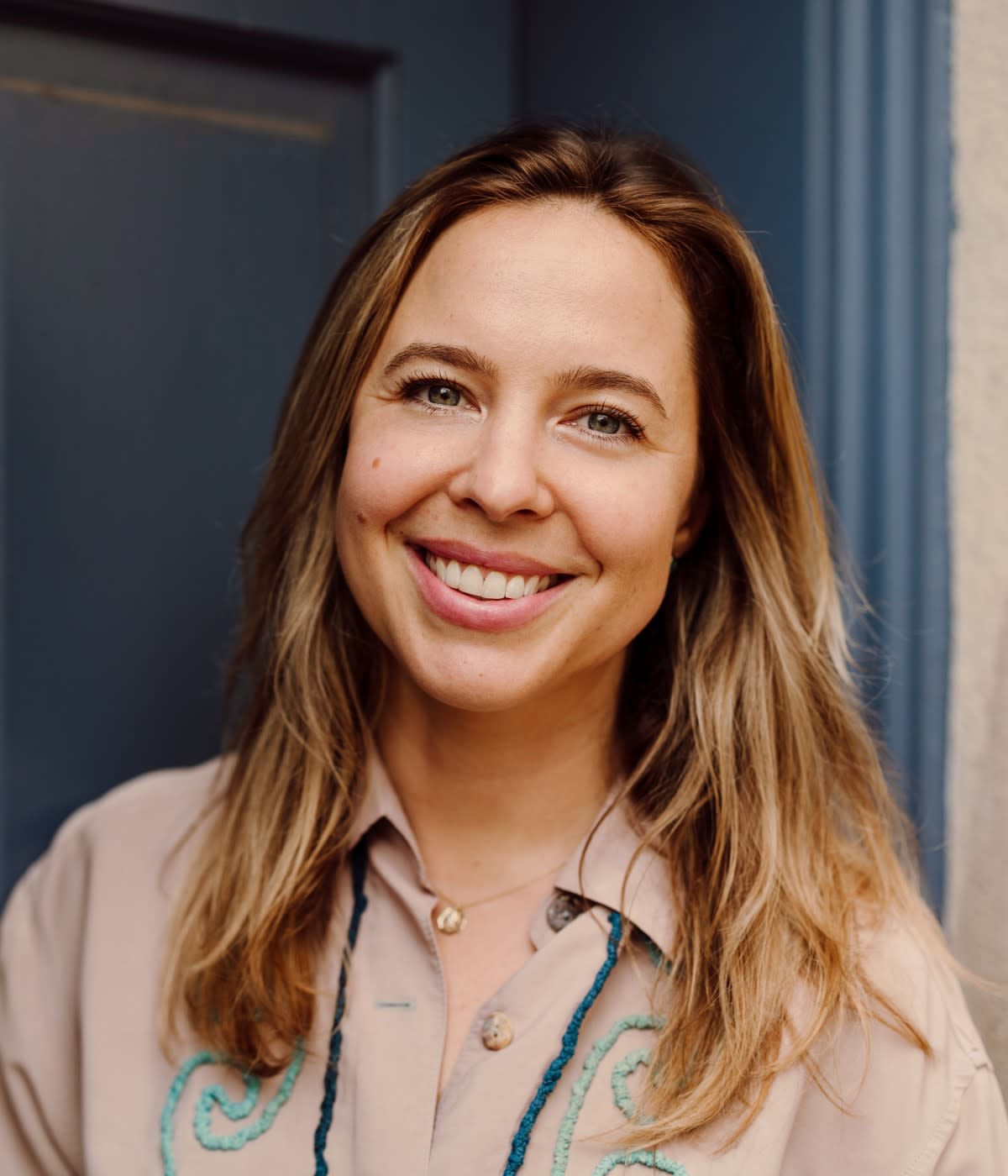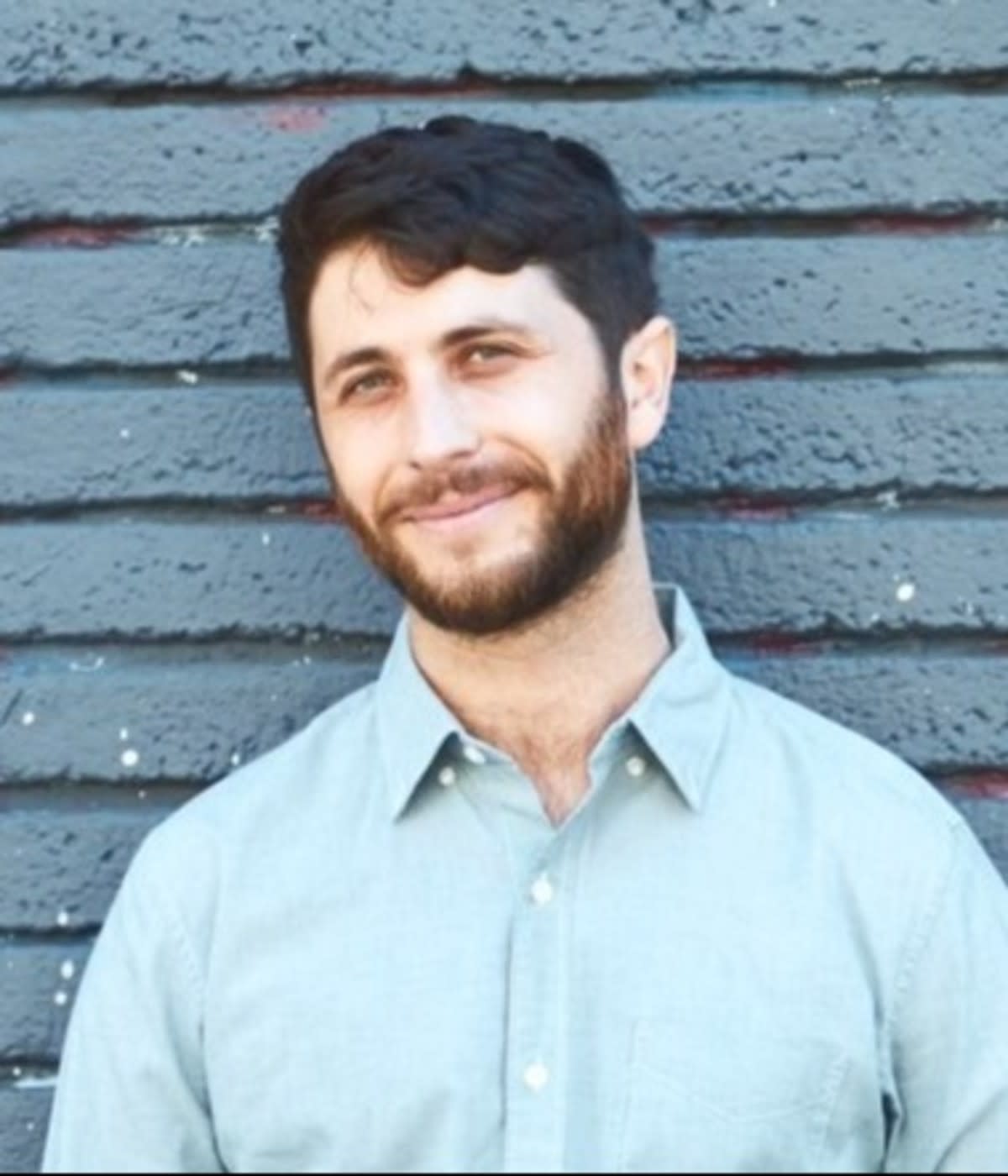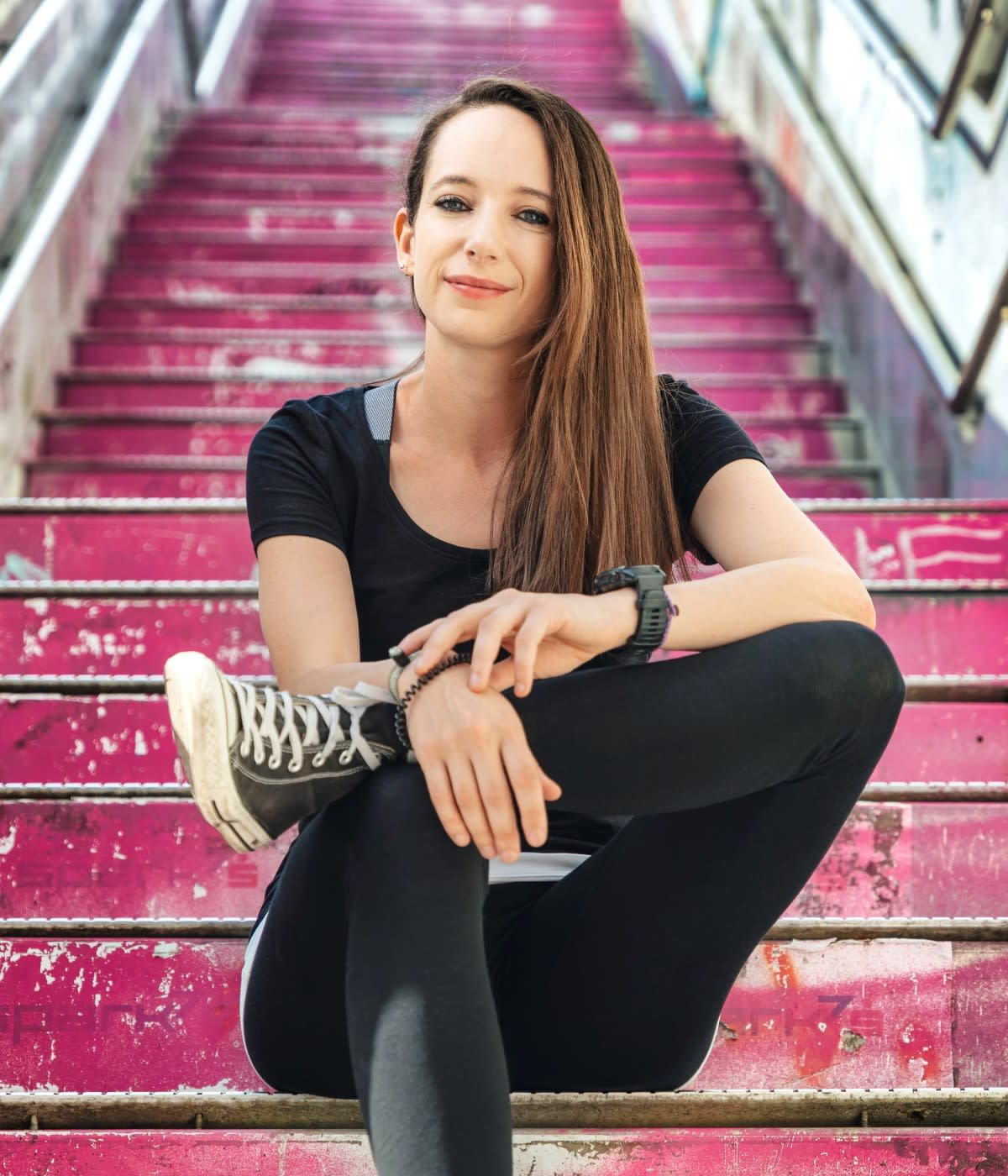I think it's important to change the perception that Africans are merely consumers; we are creators as well. By helping people across Africa build projects and showcase their work globally, I hope to change this narrative and demonstrate that Africa is also a hub for innovation and creativity, especially within the open source community. Right now, Africa’s rate of participation and overall volume of open source projects is relatively low in comparison to other regions of the world. This level of engagement is frustrating because I've seen the motivation and passion of Africans when they go abroad, and I want to help them realize that they can create those kinds of projects right here in Africa too, regardless of their unique challenges. My ultimate dream is to empower the open source community in Africa.
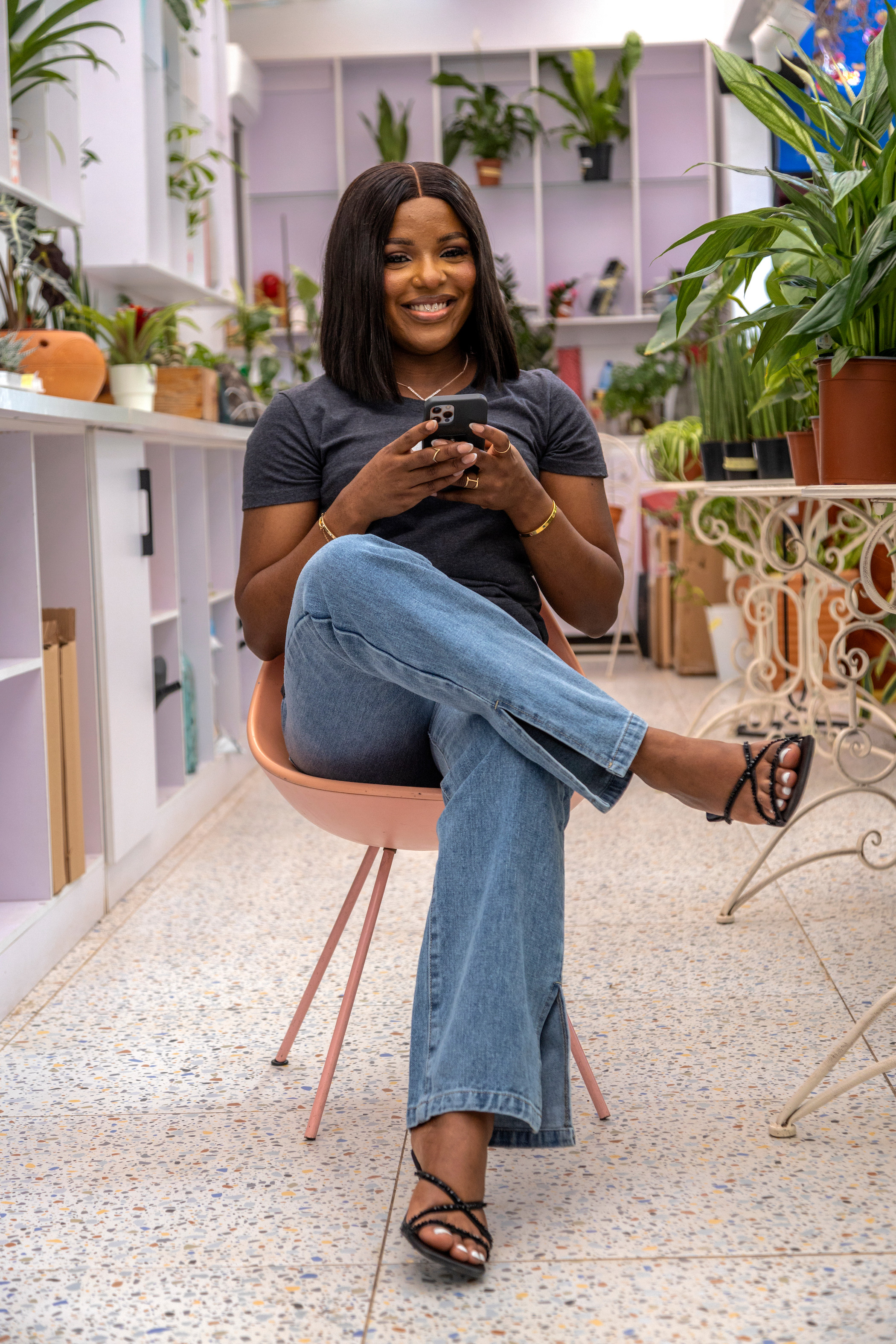
In my opinion, the heart of open source lies in the strength of its communities. Every successful project, whether Kubernetes, Python, or Jenkins, has a strong community behind it. While having a great idea is important, community support is crucial to its success. Community managers and program managers are a great help with this, as they have the skill set to bring people together, foster collaboration, and help them improve on existing ideas. It's easy to get stuck when you work alone. Collaboration brings new ideas to the table and helps accelerate innovation. It has been a beautiful experience to see how community involvement has benefitted both my personal growth and the growth of the projects I’m involved in.
When I first got started in open source, it felt like the space was filled with advanced developers who had 10-20 years of experience, and I had no idea how to get involved in such an impressive community. I had recently graduated college with a non-technical degree and was still new to the programming world. I asked my friend Samson Goddy, co-founder of Open Source Community Africa—a movement that promotes and educates everything open source within Africa—for recommendations on communities to join. He suggested the GNOME Project, specifically the Scalable Onboarding Project, which helps beginners get started with the GNOME Foundation and open source. I attended my first meeting and immediately joined; it was a perfect fit.
At first, I faced a bunch of challenges that really pushed me out of my comfort zone. Coming from a non-technical background, learning Git and version control best practices was difficult. I had great ideas about how to improve the project, but I didn’t know how to implement them. I didn't understand how to clone the project or merge any changes I made, and I struggled to find guides or documentation to help me out. I vividly recall staying up all night, struggling to submit a single pull request.
To clear those initial hurdles, I reached out to a more experienced friend, Okoye Chidi and took courses on GitHub Skills. Once I began contributing, I was shocked to see that everyone's opinions were valued, regardless of their level of expertise. Even as a beginner, I was quickly welcomed into the community and had the opportunity to make a meaningful impact. The biggest fear people have about open source is that they aren’t technical enough to contribute, but looking back now, I can see that fear is unfounded. From what I've seen, anyone can learn, even if you don’t write code, and you can always work with maintainers to understand the projects they're building and find ways to contribute. The open source community is always looking for ways to get people involved.
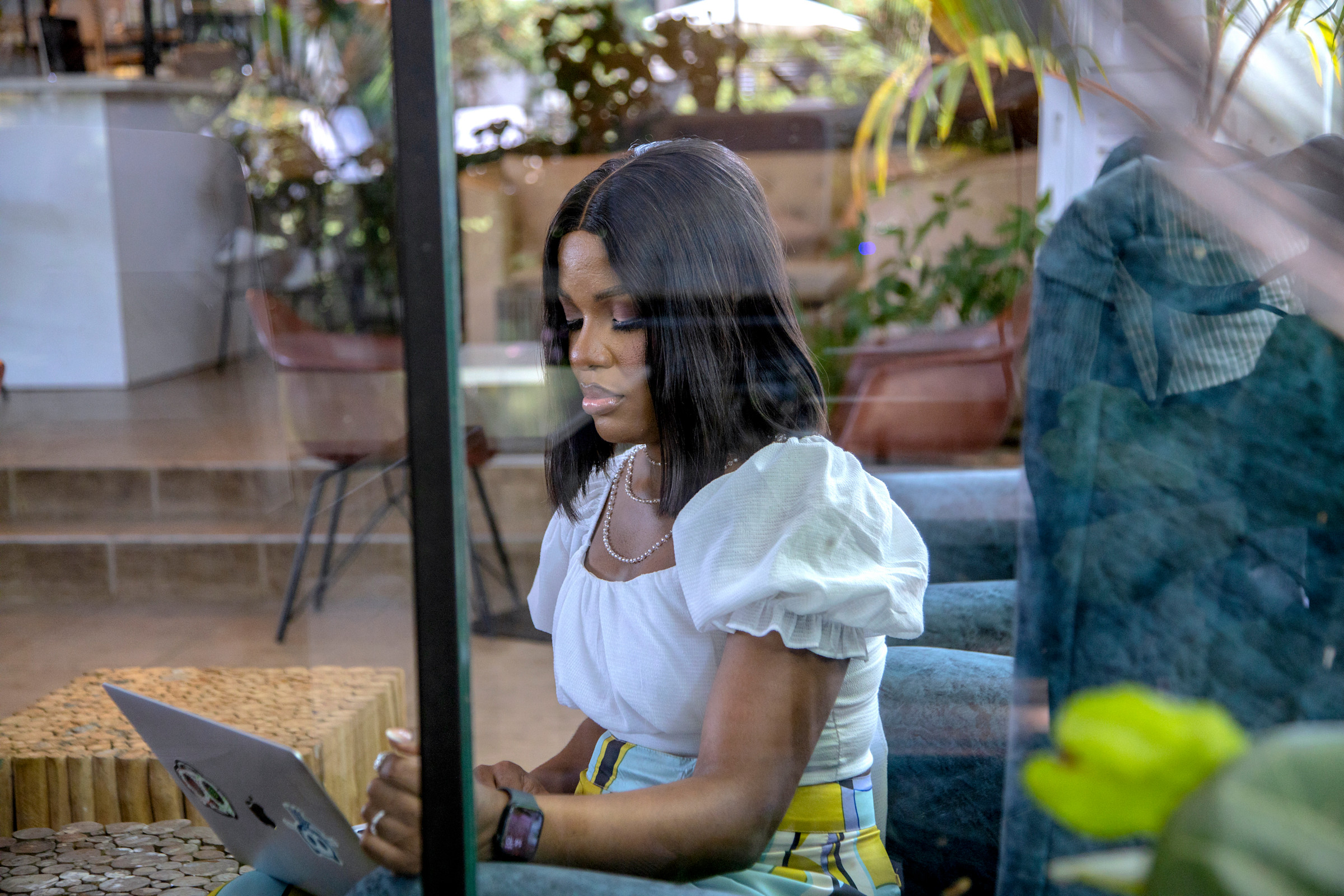
Discovering the power of community
Had you asked me during college if I could envision myself working in the tech industry, my answer would have been a resounding NO. I wasn't particularly enthusiastic about computers. I didn't dislike them, but they just weren't my thing. I was looking for ways to empower my community, and I didn’t think that was possible from behind a computer screen. I never imagined I’d become a back-end Python developer, open source contributor and program manager, and GitHub Star.
It wasn’t long ago that I was spending most of my days working in the lab, cultivating microorganisms, and preparing samples on microscope slides. Microbiology was my passion, especially the link between microorganisms and human health. While studying microbiology at the University of Port Harcourt in Nigeria, close to where I grew up, I had many opportunities to volunteer my time and skills. I frequently helped with the Sickle Cell Foundation and also assisted with blood donations. I have always been passionate about volunteering, and it was a blessing to be involved in a community so committed to giving back. Whether I was working in the lab or comforting someone during a blood donation, it was remarkable to see the impact you can have on the world when you join together to leverage collective knowledge and skill.
We want to hear from you! Join us on GitHub Discussions.
The pandemic hit shortly after I graduated from college, and all of my energy and momentum slowed to a halt. Although there were still opportunities for volunteering, I was stuck spending most of my now abundant free time at home. I researched what I could do from home to keep moving forward in my career. I still had the laptop I used for my final project at university, so I started messaging my friends who worked in tech to get advice on where to start.
My friend Peace Ojemeh suggested that I learn Python and explained how it can be used to analyze microbiological data. I began teaching myself by seeking out online resources, watching YouTube videos, and following tech creators on Twitter. My plan was to learn the basics of programming and then find something that I could build using my knowledge from university. Although diving headfirst into technology was challenging, I was determined to learn and grow in this field. Things really took off when I found open source and realized that the power of community was being utilized to build world-changing digital solutions.
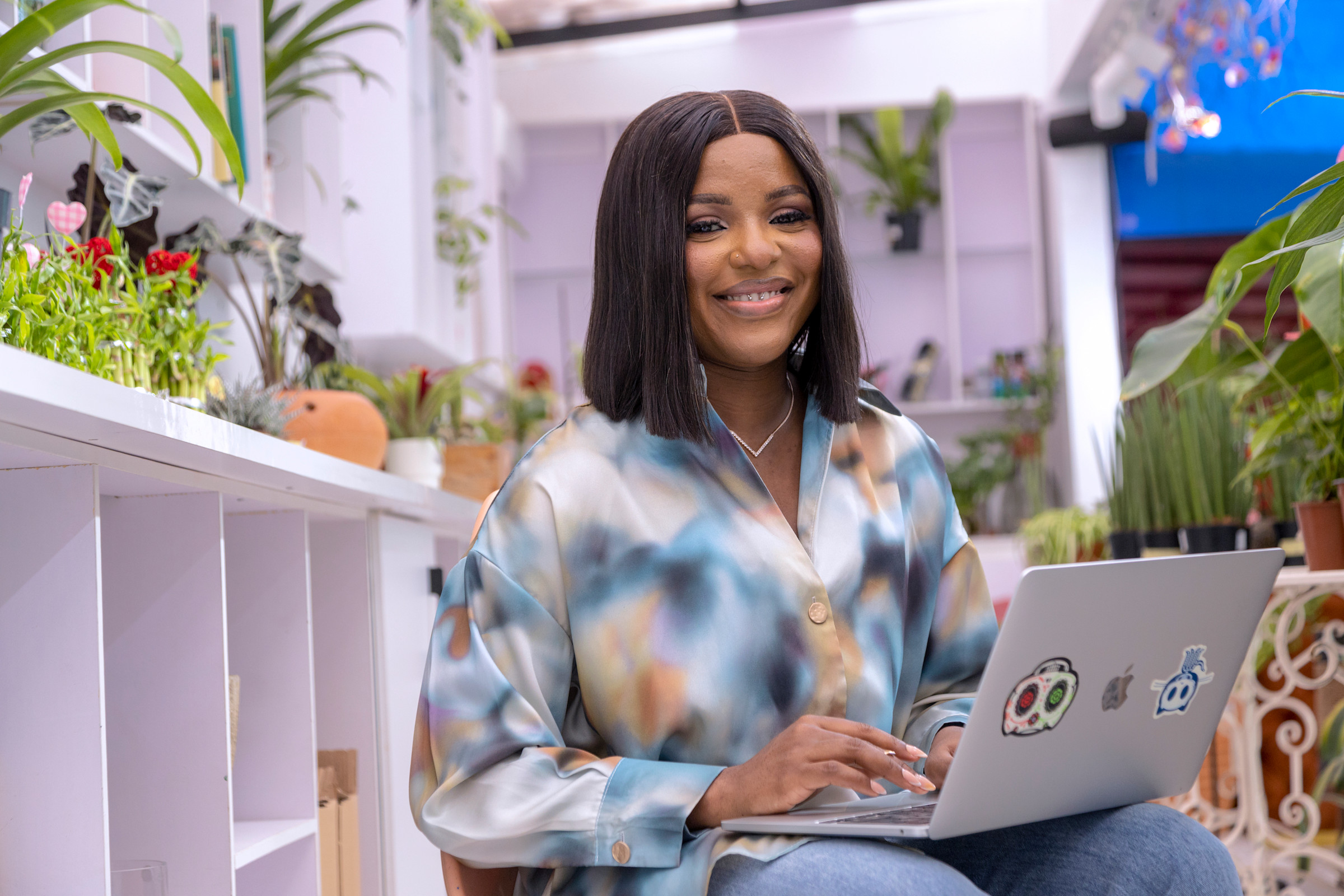
Paving the way for inclusivity through CHAOSS
Working with the GNOME Project helped me build connections within open source, which led me to the Community Health Analytics Open Source Software (CHAOSS) project. CHAOSS is a Linux Foundation project focused on raising awareness of open source community health on a global scale. They were starting a project called DEI (Diversity, Equity & Inclusion) Event Badging, which I saw as a great opportunity to work in both open source and community building. The project highlights diverse and inclusive conferences by awarding them a DEI Event Badge for their efforts. After two years, we initiated an African chapter of the project, CHAOSS Africa, which I now lead.
Leading a community can be challenging and complex. With CHAOSS, my role involves overseeing community management and maintaining documentation, among other things. The project has more than 1,000 members, including drive-by contributors, so my job is to ensure everyone feels welcome and included. This requires creating a community handbook, facilitating office hours, and hosting newcomer onboarding calls. It's essential to make sure that everyone, from beginners to experts, has a place in the community, which can be a daunting task.
Although tech is becoming more inclusive for women, there is still more work to be done. Early on, I was fortunate to have been connected with She Code Africa, a non-profit organization that provides training, support, and resources to African women in tech. She Code Africa is popular throughout Africa and offers women a safe and supportive space to discuss their experiences. It also provides access to resources such as laptops and technical training. These types of organizations are vital in supporting the advancement of women in technology and creating a more inclusive and diverse community in the industry broadly.

Advancing African open source through authenticity
In addition to my ongoing work with CHAOSS Africa, I'm involved in communities like Open Source Community Africa, where I recently teamed up with my friend Samson as a volunteer program manager. Together, we're reaching out to Africans who are interested in open source and addressing their unique situations. Working from Nigeria comes with its own set of tech challenges, like unreliable power and internet access. These issues can make it tough to contribute to open source projects or join in on meetings and calls, which can eat up a lot of data. Time zone differences can be a pain too.
I've found that connecting individuals with the resources they need makes a huge difference in what they can achieve. I've experienced it myself — even simple recommendations or help with tech and internet access can make a big impact. At the end of the day, we all need to lift each other up, be real, and share our skills to make the community even better.
Being authentic is super important when you're trying to make a difference. When I started, I wasn't looking to be famous or anything—I just wanted to help people. When you're genuine and you give value to others, it's way easier for people to connect with you. So, if you want to succeed in making a difference for others, just remember to be true to yourself and focus on giving back where you can—you’ll be amazed at what you’ll learn in the process.

